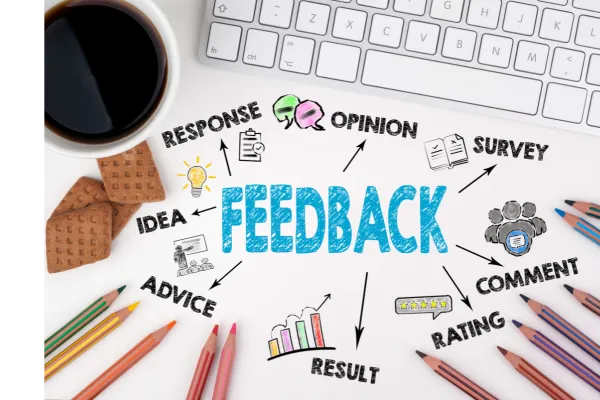EPIPHANIES FOR EVERYBODY

Effective Feedback
Effective Feedback
It’s an all too familiar story — girl gets job, girl wants to grow and develop, girl requests feedback, girl gets radio silence or feedback that disappoints. Why does this happen?
It turns out there’s a science to good feedback. And it’s significantly different than anything being taught to leaders on how to give feedback. You know the what I mean — the courses that assume that feedback is something people with power give to people without power in order to get them to change their behaviour to look more like what they want. It’s uncomfortable, resentment-building, and rarely works. But it’s what we have, so it’s what most of us do. We can do better.

Photo by Jason Rosewell on Unsplash
There are some simple things that make feedback effective. They’re not difficult to implement, but as you’ll see, they require a significantly different approach to feedback than the one described above.
First, let’s look at some of what it takes for feedback to be effective:
The source has to be credible
The giver has to be trusted by the recipient
It has to be believed by the recipient to be conveyed with good intentions
The recipient is in the right head space to receive it
It has to be helpful to the recipient
This isn’t a complete list, but it’s a fairly important subset because everything on the list shares a trait: it’s under the control of the recipient.
Almost everything about effective feedback requires significant openness from the recipient. That means that feedback can’t simply be given to somebody. And it cannot be done on a schedule that solely suits the giver.

Photo by LinkedIn Sales Solutions on Unsplash
Armed with this information, it becomes clear that in order for feedback to be effective, we have to upend the existing paradigm about giving feedback at work. Rather than a manager collecting feedback and giving it to the recipient on an annual basis, or pulling somebody aside for a chat where it feels like the recipient has done something wrong, we need people who want feedback to ask for it. They need to pull the information they’re looking for, from the people they think have it, at a time when they’re ready to hear whatever is going to be said. And even then, it’s possible the giver will give something the recipient isn’t expecting, or respond in a way that the recipient doesn’t anticipate.
So then, what can someone do when they want feedback? Other than keeping the guidance above in mind, there are a few other things they can do to maximise their chances of getting the feedback they want. Like the previous things, these are within the control of the requester.
Good requests for feedback should be:
Specific
Interactive
Timely
Specific requests are easier to respond to than general ones. “How am I doing?” is about as useful as, “good job.” While it might seem like a great idea to allow the giver to have as much leeway as possible, the truth is that being asked for general feedback puts the giver in an awkward spot — what if the feedback given isn’t what was intended? What do they want feedback on? — the more specific the request, the easier it is to respond to, and the greater the chance of getting something relevant and helpful.
There’s an element of interactivity in effective feedback. It’s not information, handed down from on high, inviolate in its perfection. Feedback is a conversation. It’s a request for help, and a fulfilment of that request, with opportunities to clarify, redirect, or even stop if it goes sideways.
Last, by making a request soon after the event they want feedback on, the recipient does two things: 1) They maximise their chance of learning. Feedback close to an event ensures details are still fresh and opportunities to learn are at their highest; and 2) They maximise the chance that the giver remembers the events clearly and can provide specific feedback. The greater the time between event and request, the less valuable the feedback will be.
There’s a genuine skill to excellent feedback. It’s something we all are born knowing, but often lose on our path to adulthood. It can be recaptured, and the experience of feedback can be a joyful one. I am hopeful that with what I’ve said here, you can get closer to having better feedback conversations, and accelerate your own growth.
I invite anybody who would like to have a better experience of feedback to get in touch.
Subscribe to my Newsletter
Copyright © 2026 Noah Cantor Ltd. All Rights Reserved.
